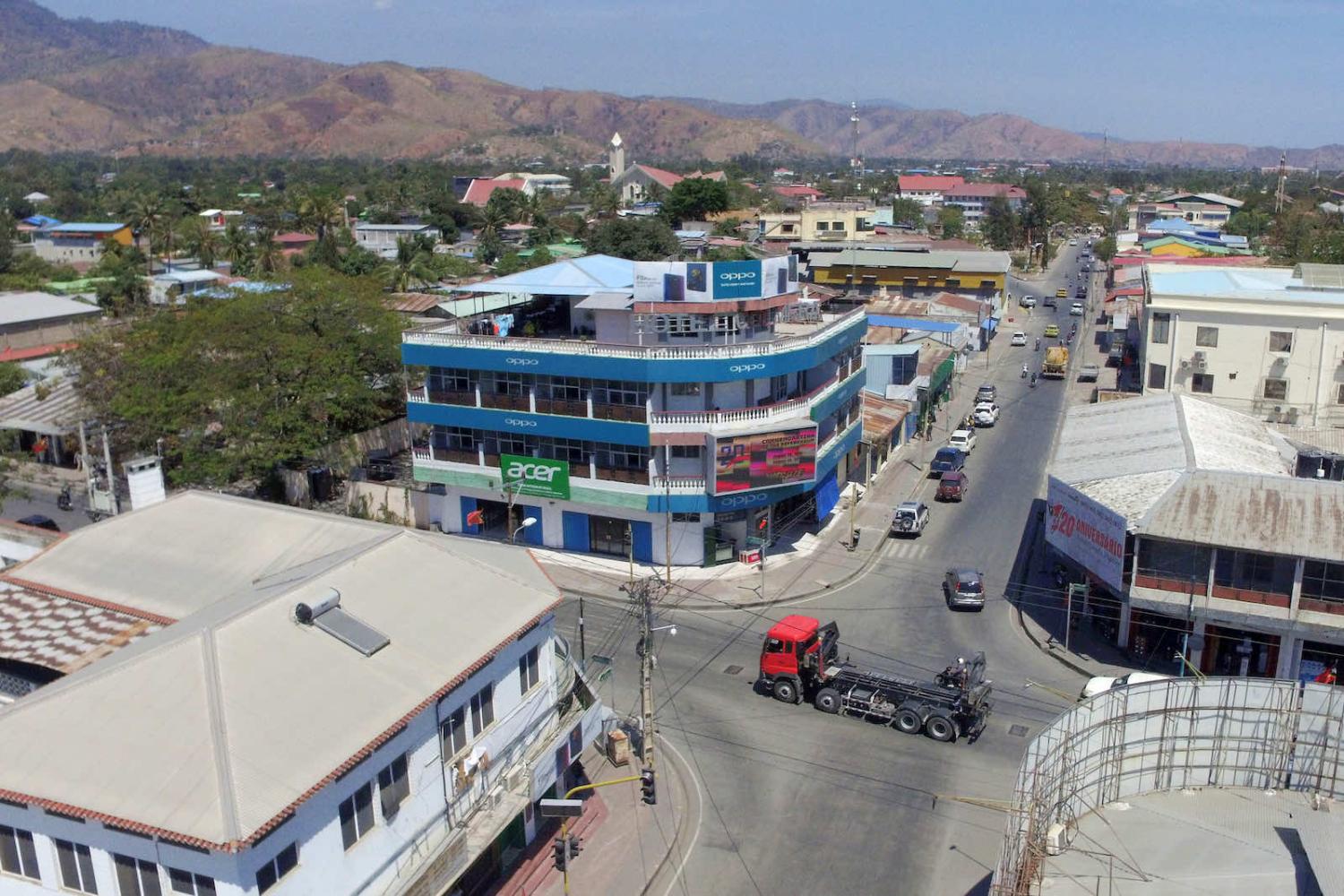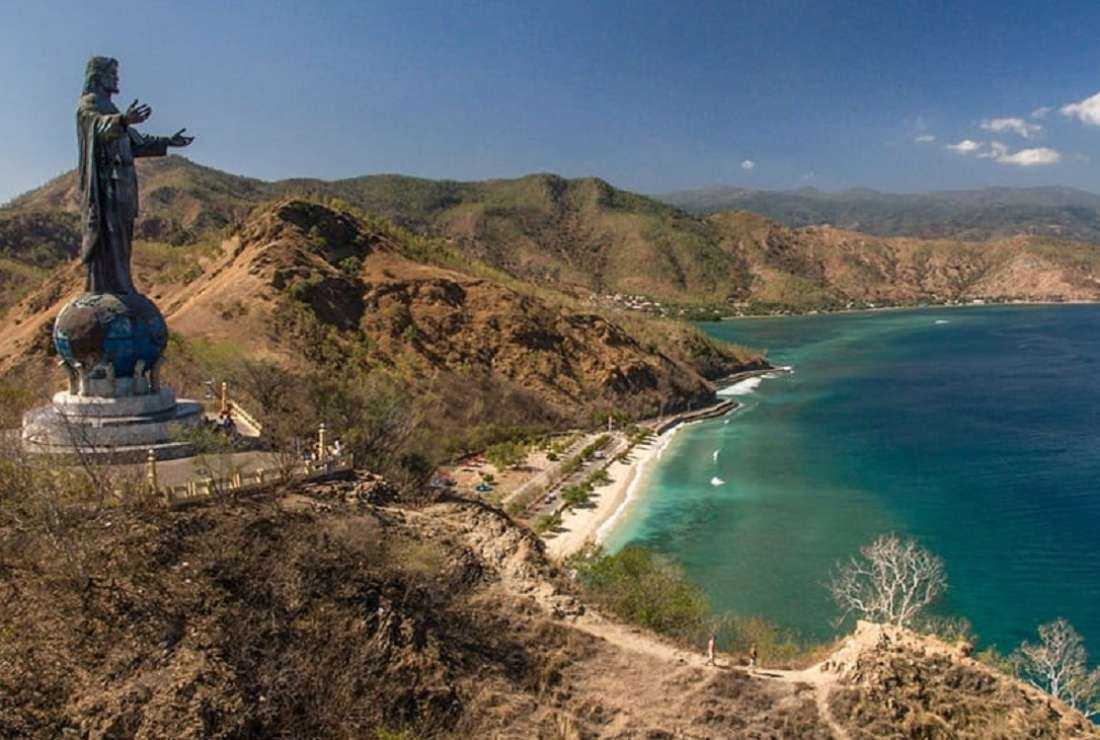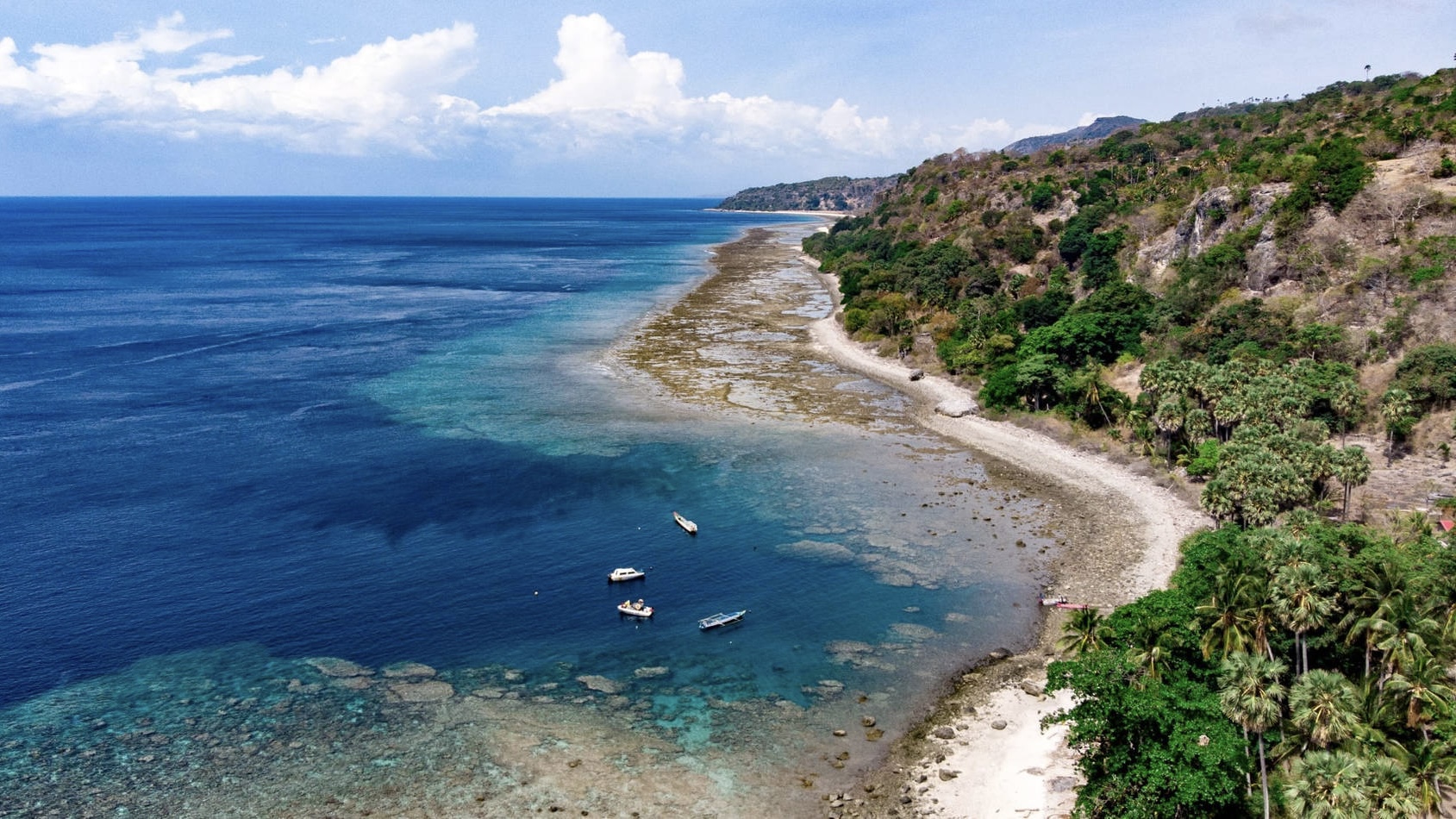Incorporate A Company In Timor-Leste In 2025

Timor-Leste, also known as East Timor, is a small Southeast Asian nation located on the eastern half of Timor Island. It shares land borders with Indonesia and is surrounded by the Timor Sea, which connects it to Australia. As one of the world’s youngest countries, Timor-Leste gained independence in 2002 after years of struggle and colonization by Portugal and occupation by Indonesia. Dili, its capital, serves as the political, cultural, and economic hub.
Rich in culture and history, Timor-Leste is renowned for its traditional art, scenic landscapes, and biodiversity. The nation has made significant strides in rebuilding its economy, primarily relying on oil and gas reserves, agriculture, and tourism. Despite challenges, Timor-Leste remains steadfast in its pursuit of sustainable development and social progress.
Standard of Living in Timor-Leste
The standard of living in Timor-Leste is modest compared to global benchmarks, but the nation is gradually improving. Economic growth, driven by natural resources and international aid, has helped Timor-Leste address poverty and infrastructure gaps.
- Housing: Most urban residents live in basic housing, while rural areas often have traditional homes with limited access to modern amenities. Efforts are underway to enhance living conditions through infrastructure projects.
- Healthcare: The healthcare system is improving but remains limited in rural regions. Government and international agencies are working to expand access and improve quality.
- Education: Timor-Leste prioritizes education, offering free primary education and expanding access to secondary and tertiary institutions. Literacy rates are steadily increasing.
- Lifestyle: Timorese people enjoy a simple and community-oriented lifestyle, with cultural festivals, traditional music, and a strong connection to the natural environment playing significant roles.
Despite progress, challenges such as unemployment and reliance on oil revenues continue to impact living standards, especially in rural areas.
Personal Taxes in Timor-Leste
Timor-Leste has a progressive tax system for individuals, which aims to ensure equitable contributions based on income levels:
- Income Tax Rates:
- Individuals earning less than $6,000 annually are exempt from income tax.
- For those earning above this threshold, tax rates range from 10% to 30% based on income brackets.
- Exemptions and Deductions:
- The government allows certain deductions, such as contributions to social security and approved charitable donations.
- Social Security Contributions:
- Employees contribute 4% of their gross salary to social security, while employers contribute an additional 6%.
Timor-Leste’s personal tax system is relatively straightforward, with efforts focused on improving compliance and administration.
Corporate Taxes in Timor-Leste
The corporate tax structure in Timor-Leste is designed to encourage investment while ensuring contributions to national development:
- Corporate Income Tax:
- Companies are subject to a flat tax rate of 10% on taxable income.
- Withholding Taxes:
- Certain payments, such as royalties, dividends, and technical services, are subject to withholding taxes, typically at rates between 2% and 10%.
- Value-Added Tax (VAT):
- Timor-Leste does not have a VAT system, but goods and services tax (GST) may apply to specific transactions.
- Special Economic Zones:
- The government is working to establish economic zones with tax incentives to attract foreign and local investment.
While Timor-Leste’s tax regime is relatively simple, its reliance on oil revenues has led to a push for diversification and modernization of its tax system.
Major Industries in Timor-Leste
Timor-Leste’s economy is largely driven by a few key sectors, with natural resources and agriculture playing pivotal roles.
- Oil and Gas:
The petroleum industry is the backbone of Timor-Leste’s economy, accounting for the majority of government revenue. The Timor Sea contains significant oil and natural gas reserves, and the government manages these resources through the Petroleum Fund to ensure long-term benefits. However, as reserves deplete, the country is focusing on diversifying its economy. - Agriculture:
Agriculture employs over 60% of the population. Key crops include coffee, rice, maize, and cassava. Timor-Leste’s coffee industry, especially organic coffee, is a major export earner. The government is investing in agricultural modernization to enhance productivity and food security. - Tourism:
With stunning beaches, vibrant marine life, and a rich cultural heritage, Timor-Leste is emerging as a tourism hotspot. Dili, the capital, and Atauro Island are popular destinations for diving, snorkeling, and eco-tourism. Tourism is seen as a promising industry for job creation and economic diversification. - Fisheries:
The nation’s vast maritime territory offers opportunities for sustainable fishing and aquaculture. Efforts are being made to regulate and develop the fisheries sector. - Infrastructure Development:
Infrastructure is a priority for Timor-Leste’s development, with investments in roads, ports, and housing. The Tasi Mane project, which includes building an industrial zone, airport, and petroleum facilities, highlights the government’s focus on infrastructure.
Inflation and Cost of Living in Timor-Leste
- Inflation:
Inflation in Timor-Leste has been moderate but varies due to its reliance on imports for essential goods. The currency, the US Dollar, provides stability, but fluctuations in global oil prices and supply chain disruptions can impact inflation rates. - Cost of Living:
- Housing: Accommodation costs depend on location. Urban areas like Dili have higher rents, with expatriates often choosing furnished apartments.
- Food and Essentials: Imported goods, which make up a significant portion of the market, can be expensive. Locally produced food and agricultural products are more affordable.
- Utilities: Water and electricity services are generally reliable in urban areas but limited in rural regions.
- Transportation: Public transport is basic and inexpensive, but owning a car can incur additional costs due to fuel prices.
Overall, the cost of living is reasonable compared to other Southeast Asian nations, but it can vary significantly for expatriates based on lifestyle choices.

Property Tax, Services, and Sales Tax in Timor-Leste
- Property Tax:
Timor-Leste does not impose a formal property tax system. However, property transactions may incur fees, and land registration is subject to specific charges. - Services Tax:
A service tax is levied on specific sectors such as hospitality, including hotels and restaurants. The rates are moderate and are designed to contribute to government revenues without discouraging business activities. - Sales Tax:
Timor-Leste does not currently have a VAT or general sales tax. However, import duties and excise taxes apply to certain goods, making imported products more expensive.
Efforts are underway to modernize the tax system and expand the government’s revenue base.
Types of Business Entities in Timor-Leste
Entrepreneurs have several options when setting up a business in Timor-Leste.
- Sole Proprietorship:
A single individual owns and operates the business. This is the simplest and most common structure for small enterprises. - Partnership:
Two or more individuals share ownership and responsibilities. Partnerships can be general or limited, depending on the liability distribution among partners. - Limited Liability Company (LLC):
An LLC is a popular choice for larger businesses. It requires at least one shareholder and offers limited liability protection to its owners. - Branch Office:
Foreign companies can establish branch offices to conduct business in Timor-Leste. These branches must comply with local laws and regulations. - Non-Profit Organizations:
NGOs and charitable organizations can register to operate in the country, focusing on development projects and social initiatives.
Licenses to Start a Business in Timor-Leste
To start a business in Timor-Leste, entrepreneurs must obtain specific licenses and approvals.
- Business Registration:
Businesses must register with the Business Registration and Verification Service (SERVE), which simplifies the process for both local and foreign investors. - Tax Identification Number (TIN):
A TIN must be obtained from the Ministry of Finance to ensure compliance with tax regulations. - Sector-Specific Licenses:
Depending on the nature of the business, additional licenses may be required, such as permits for hospitality, retail, or transportation services. - Environmental Approvals:
Businesses impacting the environment, such as construction or manufacturing, must secure environmental clearance.
The licensing process is improving, but bureaucratic challenges can still arise, particularly for expatriates unfamiliar with local systems.
Opportunities for Expats for Business Growth in Timor-Leste
Timor-Leste offers untapped opportunities for expatriates in several sectors:
- Tourism:
Eco-tourism, adventure tourism, and cultural tourism are growing industries with vast potential for expats to establish resorts, tour services, or travel agencies. - Agribusiness:
Opportunities exist in coffee production, organic farming, and agro-processing, particularly for those with expertise in sustainable agriculture. - Construction and Real Estate:
Expats with experience in construction and real estate development can benefit from the government’s focus on infrastructure projects. - Education and Training:
As Timor-Leste prioritizes education, there is a demand for private schools, vocational training centers, and language institutes. - Technology and IT Services:
The digital economy is still in its infancy, providing opportunities for expats to introduce IT solutions, e-commerce platforms, and telecom services.
Challenges include navigating regulatory requirements, infrastructure limitations, and cultural differences, but the potential rewards are significant.
Citizenship for Expats in Timor-Leste
Timor-Leste’s citizenship policies are restrictive, reflecting the nation’s focus on preserving its identity and resources.
- Pathways to Citizenship:
- Residency Requirement: Expats must live in Timor-Leste for a minimum of 10 years and demonstrate integration into the local community.
- Language and Cultural Knowledge: Applicants must show proficiency in Tetum or Portuguese and understanding of Timor-Leste’s history and culture.
- Permanent Residency:
Permanent residency is more accessible than citizenship and offers benefits such as the ability to own property and access public services. - Special Cases:
Exceptional contributions to the nation, such as significant investments or humanitarian work, may expedite the citizenship process.
While citizenship remains a long-term goal, many expats opt for residency and enjoy the benefits of living and working in Timor-Leste.
Why Register a Company in Timor-Leste?
Timor-Leste offers a range of advantages for businesses looking to establish themselves in the region.
- Untapped Market Potential:
Timor-Leste’s economy is in its early stages of development, presenting opportunities for businesses in sectors such as tourism, agriculture, fisheries, and renewable energy. With limited competition in many industries, entrepreneurs can carve out significant market share. - Strategic Location:
Situated between Indonesia and Australia, Timor-Leste serves as a gateway to both Southeast Asian and Pacific markets, providing access to a diverse consumer base. - Government Support:
The government actively encourages foreign investment through initiatives like tax incentives, infrastructure projects, and streamlined regulations. - Rich Natural Resources:
Timor-Leste’s oil and gas reserves, fertile land, and marine resources offer opportunities for businesses in resource extraction, agriculture, and aquaculture. - Tourism Potential:
The nation’s pristine beaches, cultural heritage, and biodiversity make it an emerging destination for eco-tourism, adventure tourism, and luxury travel. Entrepreneurs in hospitality and travel services can benefit significantly.
How to Register a Company in Timor-Leste
Registering a company in Timor-Leste involves several steps, but recent reforms have simplified the process:
- Choose a Business Structure:
Decide on the type of business entity, such as a sole proprietorship, partnership, or limited liability company (LLC). An LLC is the most common choice for foreign investors due to its flexibility and limited liability. - Register with SERVE:
The Business Registration and Verification Service (SERVE) is the primary agency for company registration in Timor-Leste. Submit the required documents, which include:- Business name approval
- Identification documents of owners and directors
- Articles of Association
- Proof of registered address
- Obtain a Tax Identification Number (TIN):
Register for a TIN with the Ministry of Finance to ensure compliance with tax regulations. - Apply for Licenses:
Depending on the nature of the business, additional licenses may be required, such as environmental permits or sector-specific approvals. - Open a Bank Account:
Open a corporate bank account in a local bank to facilitate business transactions. - Complete Local Compliance Requirements:
Ensure compliance with labor laws, environmental regulations, and other local requirements.
Cost to Register a Business in Timor-Leste
The cost of registering a business in Timor-Leste is relatively affordable, making it accessible for startups and small businesses.
- Business Name Registration:
The cost of reserving a business name is minimal, typically under $50. - Registration Fees:
Company registration fees vary based on the type and size of the business, ranging from $100 to $300 for most entities. - License Fees:
Sector-specific licenses or permits may add additional costs, depending on the industry. - Professional Services:
Entrepreneurs may incur costs for legal, notary, or consultancy services, typically between $500 and $1,000, depending on the complexity of the business setup.
Despite these costs, Timor-Leste’s overall low operational expenses make it an attractive destination for new businesses.
Relation with Other Countries of Timor-Leste
Timor-Leste has developed strong diplomatic and economic ties with several nations to bolster its development and integration into the global economy.
- Regional Partnerships:
- Indonesia: As its closest neighbor, Indonesia is a major trade partner and collaborator on infrastructure and economic projects.
- Australia: Timor-Leste shares maritime boundaries and oil and gas agreements with Australia, making it a key ally in resource management.
- International Organizations:
Timor-Leste is a member of the Community of Portuguese Language Countries (CPLP) and actively engages with the United Nations to promote peace and development. - Development Assistance:
Nations like Japan, South Korea, and the United States provide significant aid and technical expertise for Timor-Leste’s infrastructure, education, and healthcare sectors. - Trade Relations:
The country is exploring free trade agreements and partnerships to increase its exports, particularly coffee and petroleum products, to international markets.

Any Other Taxes in Timor-Leste
Timor-Leste’s tax system is relatively simple, with few taxes in place to encourage economic activity and investment:
- Corporate Tax:
Businesses are subject to a flat corporate tax rate of 10%, one of the lowest in the region. - Withholding Tax:
Certain payments, such as royalties, dividends, and technical services, are subject to withholding taxes, typically at rates ranging from 2% to 10%. - Excise Taxes:
Excise taxes are levied on goods like alcohol, tobacco, and luxury items. - Import Duties:
Import duties apply to a range of goods, with rates varying depending on the type of product.
Timor-Leste’s minimal tax burden is a significant advantage for both local and foreign businesses, enabling higher profitability and reinvestment.
Social Security in Timor-Leste
Timor-Leste’s social security system is still in its nascent stages, but the government is committed to providing a safety net for its citizens:
- Pension System: The government offers pensions for veterans, elderly citizens, and individuals with disabilities as part of its commitment to social welfare.
- Healthcare Services: Public healthcare is available to citizens, although services are limited in rural areas. International aid and government programs are gradually improving healthcare accessibility.
- Employment Support: Labor laws in Timor-Leste aim to protect workers’ rights, with initiatives focused on improving job opportunities and wages.
While social security coverage is basic, ongoing reforms and international collaborations aim to strengthen the support system for vulnerable populations.
Weather, Climate, and Regional Safety
Weather and Climate
Timor-Leste experiences a tropical climate characterized by two distinct seasons:
- Dry Season (May to November):
This period is marked by warm temperatures and low rainfall, making it ideal for tourism and outdoor activities. - Wet Season (December to April):
The wet season brings heavy rainfall and occasional flooding, particularly in coastal and low-lying areas. Despite this, agriculture benefits from the increased water supply.
The average temperature in Timor-Leste ranges between 20°C and 35°C (68°F to 95°F), making the climate generally warm and suitable for a variety of activities.
Regional Safety
Timor-Leste is considered one of the safer countries in the region. Key aspects of its safety include:
- Low Crime Rates: Violent crime is rare, and petty crimes such as theft are relatively infrequent.
- Political Stability: Since its independence in 2002, Timor-Leste has made significant progress in achieving political stability, although occasional protests or demonstrations may occur.
- Community Safety: The close-knit community structure fosters a sense of safety and mutual support among citizens.
Despite these positives, challenges such as natural disasters and limited emergency response infrastructure remain, particularly in remote areas.
Passport Power of Timor-Leste
The Timorese passport offers modest global mobility, providing visa-free or visa-on-arrival access to around 60 countries, including some in Asia, Africa, and the Pacific.
- Regional Access: Timorese citizens can travel easily within Southeast Asia due to diplomatic agreements and regional partnerships.
- Limitations: Access to European and North American countries often requires visas, reflecting the nation’s developing international relations.
Efforts are underway to strengthen diplomatic ties and improve the passport’s power, offering greater travel opportunities for its citizens.

Scope of Education, Growth, and Opportunities
Timor-Leste has prioritized education and development as cornerstones of its progress.
Education
- Primary and Secondary Education: Education is free and mandatory at the primary level, with increasing enrollment rates in rural and urban areas.
- Higher Education: Institutions such as the National University of Timor-Leste offer courses in various disciplines, while international scholarships enable students to pursue education abroad.
- Challenges: Limited resources, lack of trained teachers, and infrastructure gaps are barriers to achieving higher literacy and education quality.
Economic Growth and Opportunities
- Job Market: Agriculture, tourism, and infrastructure development are the primary employment sectors. New opportunities are emerging in renewable energy and digital services.
- Entrepreneurship: Government programs and international partnerships support small businesses and startups, particularly in agriculture and crafts.
Quality of Life
- Community Life: The Timorese lifestyle emphasizes community bonds and cultural traditions, creating a welcoming and inclusive environment.
- Natural Resources: The nation’s rich biodiversity and fertile lands provide avenues for self-sustainability and economic development.






